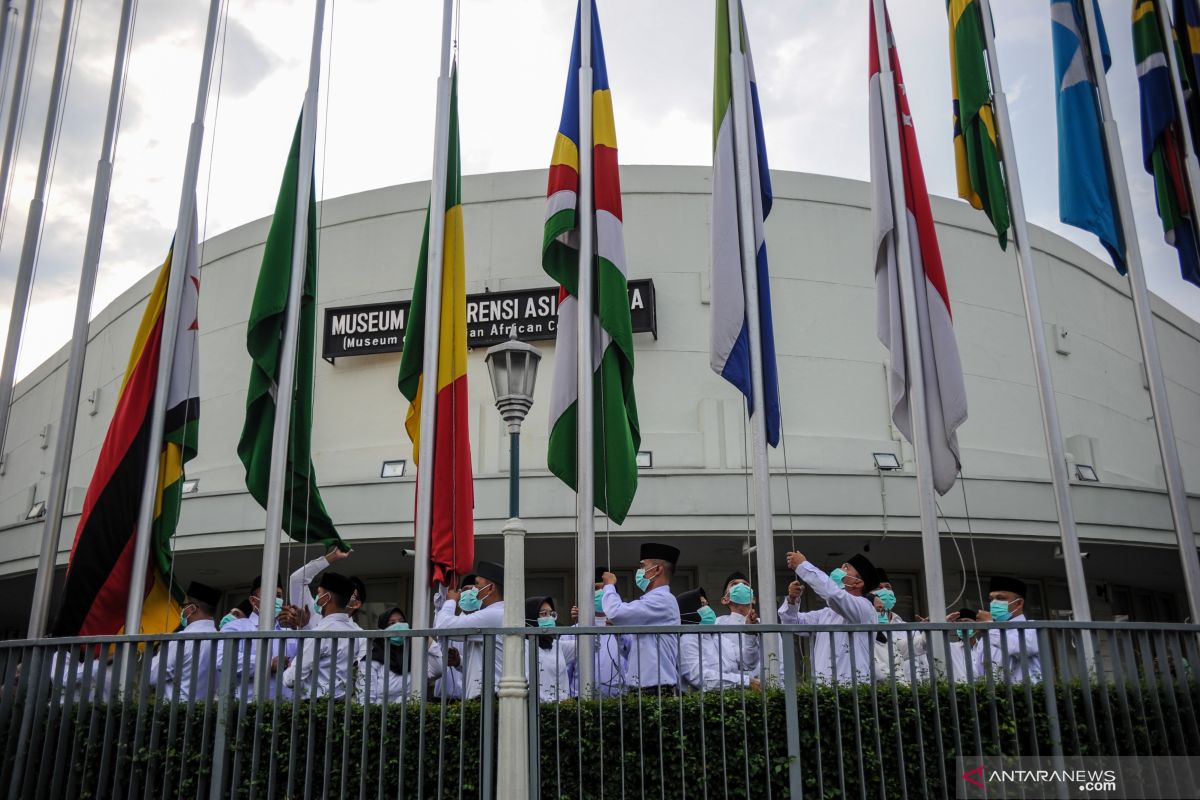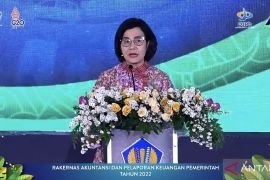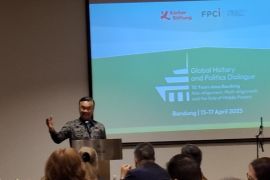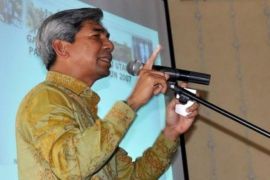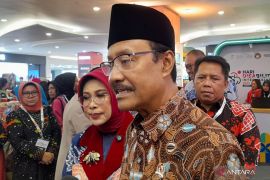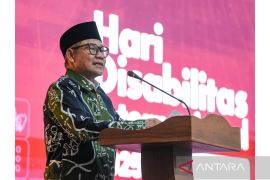This event was recognized after the UN General Assembly adopted Resolution No. A/RES/73/127 on December 12, 2018, through a ballot, with 144 in favor and two against.
Based on this resolution, the United Nations General Assembly (UNGA) invites all member countries, observers, and all international agencies subsidiary and affiliated to the UN to commemorate in suitable ways and disseminate the benefits of multilateralism and peace diplomacy, including through educational activities and enhanced public awareness.
Historically, the world experienced two major wars, namely World War I (1914-1918) and World War II (1939-1945). These tragic experiences led to complex global problems, often triggered by conflicts over land and resources in every part of the world or even ideology. In response to this situation, multilateralism emerged as a collective solution.
After World War I (WWI), the League of Nations was founded in 1920. It was classified as the first multilateral institution tasked with promoting cooperation and solidarity among nations to work on collective security and international organization.
Unfortunately, the League failed to prevent the start of World War II (WWII), but it set the stage for future efforts.
After WWI and WWII, the global situation became increasingly complex and challenging, requiring new strategies to address emerging issues such as climate change, environmental concerns, cybercrime, digital literacy, sustainable development, health, children, women's empowerment, and the refugee crisis.
The role of multilateralism remains under scrutiny, prompting the idea of creating a new organization that is more accommodative and modern, supported by an armed products mechanism to establish peace through peacekeeping missions.
This led to the establishment of the United Nations (UN) on October 24, 1945. This organization continues to face criticism, particularly regarding the veto right system and the need for reform in the Security Council representative membership.
Interestingly, the current generation seems to have neglected the role of Indonesians in resisting colonialization from the League of Nations (1920-1946) to the establishment of the UN Systems.
In fact, during this period of the establishment of the League of Nations and the UN Systems, in the context of international relations, many Indonesians living abroad as students or traders and those residing in Indonesia mounted resistance against colonial activities. This influenced other nations, such as the Youth Pledge in Indonesia (Sumpah Pemuda).
Although it did not directly impact the international world, the 1928 Youth Pledge positively impacted the Indonesian nation, which can also inspire other countries to maintain unity in diversity.
Indirectly, this Indonesian independence movement has opened the ears and eyes of the world leaders in multilateral fora to the bravery of Indonesians against colonialism.
For that reason, it is not an exaggeration to say that the founding fathers also utilized multilateralism fora as one of the institutional instruments to defend their rights and actively promote international cooperation.
This heroic experience is also clearly stated in the Preamble of the Indonesian 1945 Constitution, which outlines the state's objective to actively promote welfare and social justice and contribute to peace, world welfare, and order.
Indonesia became a member of the UN on September 28, 1950, a decision made wisely.
Indonesia once decided to withdraw from the United Nations (UN) due to disappointment with the UN, only to rejoin on September 28, 1966, after leaving on January 20, 1965.
From these perspectives, multilateralism serves as a crucial tool for Indonesia in defending its sovereign diplomacy after gaining independence, supporting national welfare, and contributing to world peace and welfare.
Indonesia clearly uses this forum for international collaboration against colonial acts. Indonesian participation also demonstrates an apparent refusal of inequality and injustice, aligning with other oppressed nations worldwide in a united stance against imperialism.
Inspired by their involvement, Indonesia's founding fathers successfully managed to unite national and international friends, particularly Asian and African leaders, by organizing the Asian African Conference (AAC) on April 18–24, 1955, at Gedung Merdeka, Bandung, Indonesia.
The AAC was held to strengthen the position of Asian and African countries against colonialism and imperialism. This bold initiative by Asian African leaders in Bandung in 1955 created a new face of diplomacy and established a new equilibrium in international relations.
The collective efforts of AAC are believed to be effective fora for promoting a new world order and formulating peace norms to be implemented equally for achieving common goals, especially for the newly independent countries worldwide.
It is not an exaggeration to suggest that the nomination of International Day for Multilateralism and Diplomacy for Peace, observed on April 24 every year, is influenced by the success of the Asian-African Conference (AAC).
The event, which culminated in the Joint Declaration of the Bandung Declaration, also known as the Dasa Sila Bandung on April 24, 1955, serves as one of the prime examples for multilateralism stakeholders to consider.
The AAC serves as a window for global society to understand and respect equal rights, oppose injustice and imperialism, and advocate for the abolition of colonialization worldwide. Notably, the establishment of the UN on October 24, 1945, occurred just two months after Indonesia gained independence on August 17, 1945.
Once again, the celebration of International Day of Multilateralism and Diplomacy for Peace on April 24 every year is an inspiring and precious moment for the current or next generation. It encourages awareness and active participation in preserving the noble values of Indonesia's founding fathers, including the heroic efforts of Indonesian heroes who fought against imperialism and devoted themselves to their motherland.
Furthermore, this heroic legacy deserves to be understood, appreciated, and developed by the current and future generations in facing the current challenges by participating actively in combating poverty, fighting inequality, and abolishing colonialization or other acts considered harmful for the nations and people, such as the fight against laziness, corruption, nepotism, environmental degradation, drug abuse, criminal activities, and other negative behaviors that may lead to conflict.
Concerning the above values, the celebration of International Day of Multilateralism and Diplomacy for Peace is an integral part of the vision of Indonesian President Prabowo Subianto in strengthening nation building for all Indonesian people at all levels. This vision respects the value of Indonesia's Independence Movement and its Founding Fathers.
Connected to this noble objective, under his presidency, several important programs have been declared and implemented, including Strengthening Sovereign, Economic and Indonesian National Protection Diplomacy, the practice of singing the national anthem every Tuesday and Thursday for all government employees, anti-corruption campaigns, and the provision of free nutrition meals for all Indonesian students.
*) Moehammad Amar Ma’ruf is the writer of Book “Katulistiwa"
Copyright © ANTARA 2025
